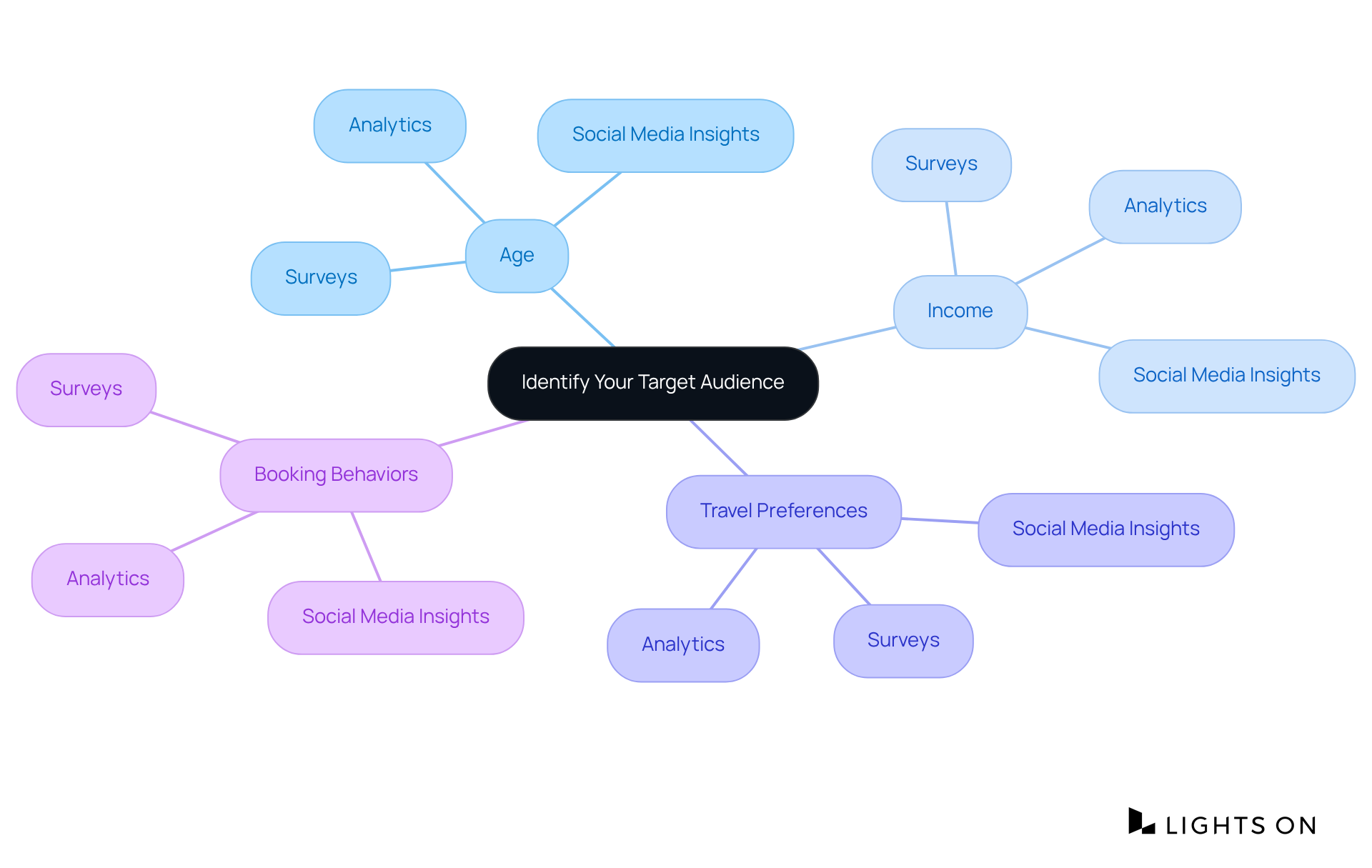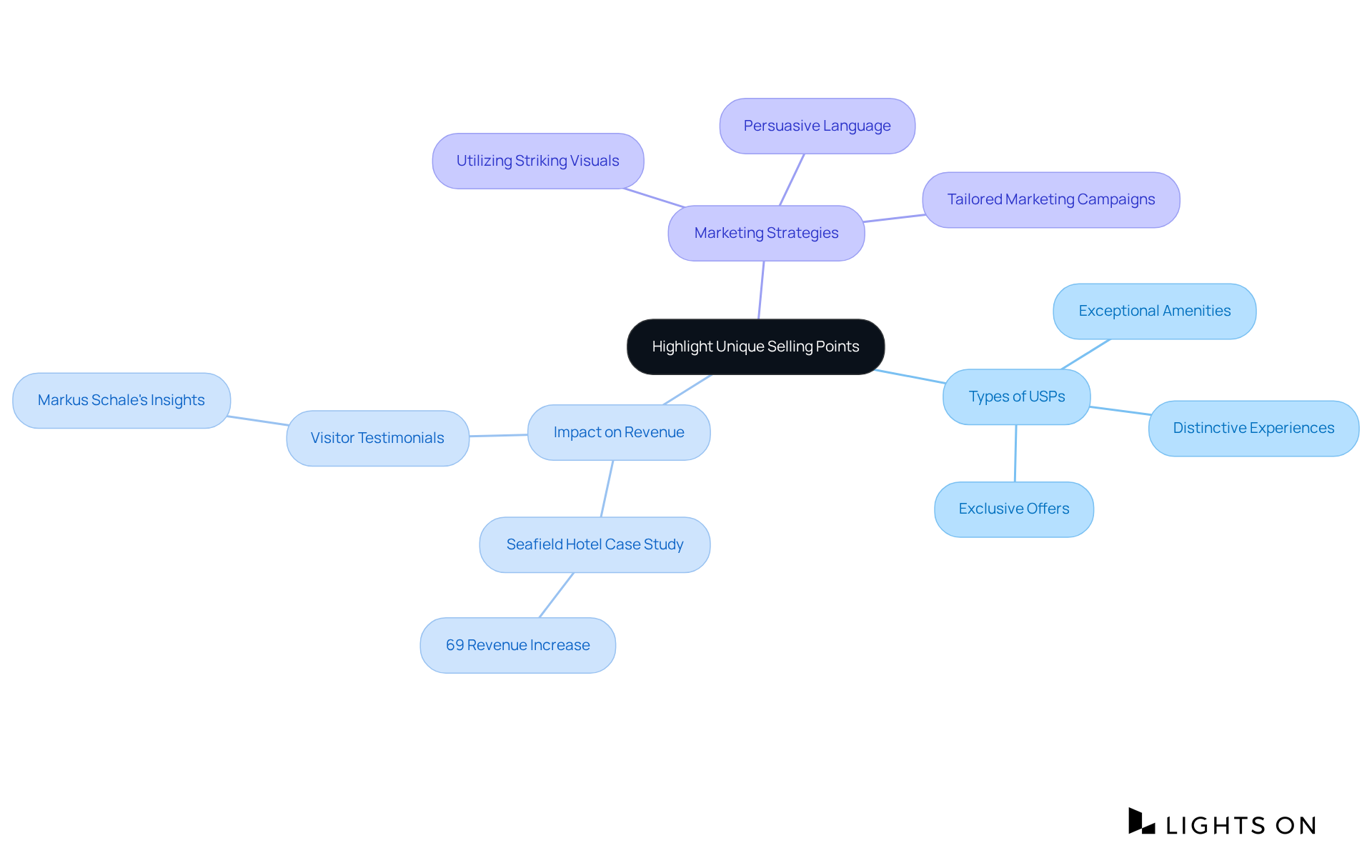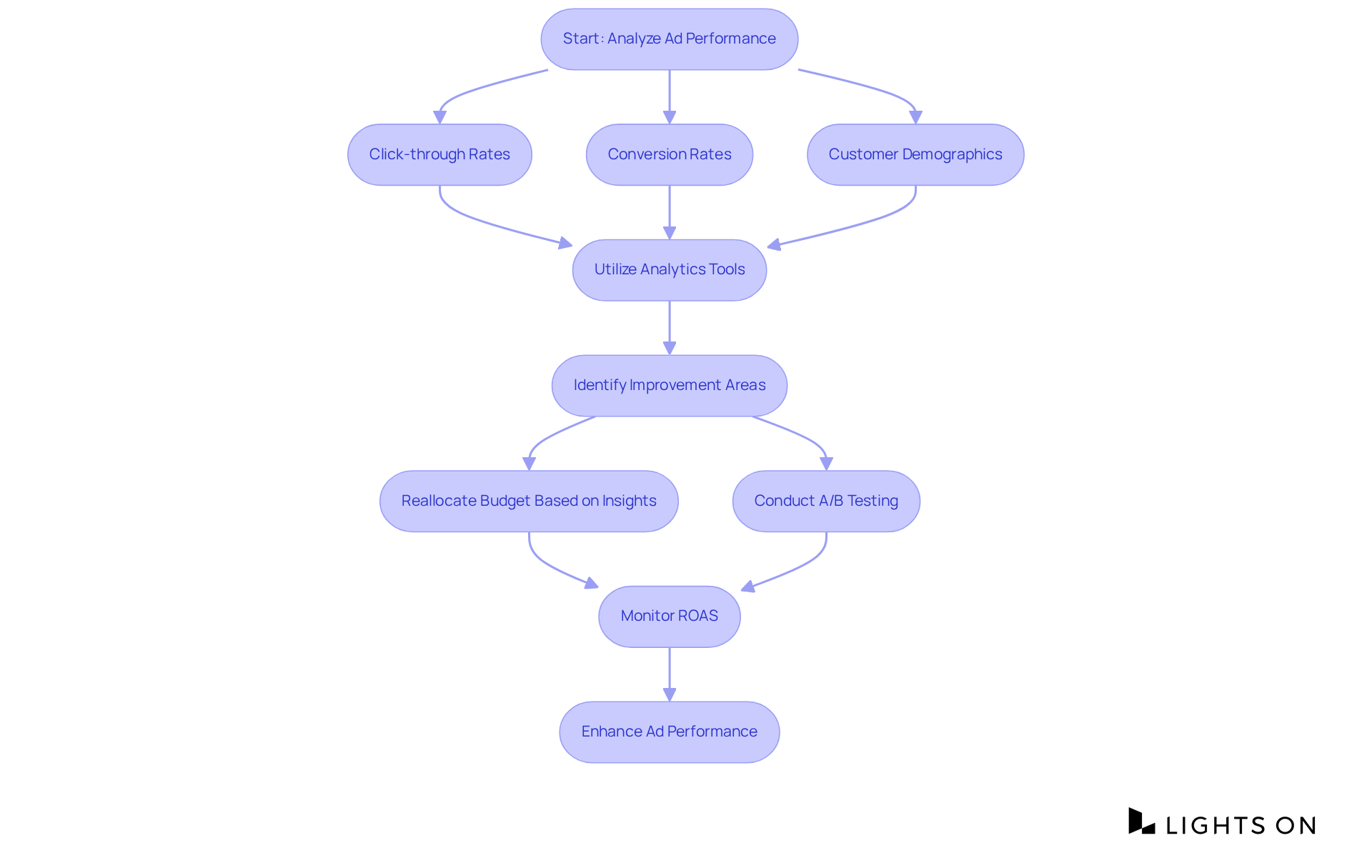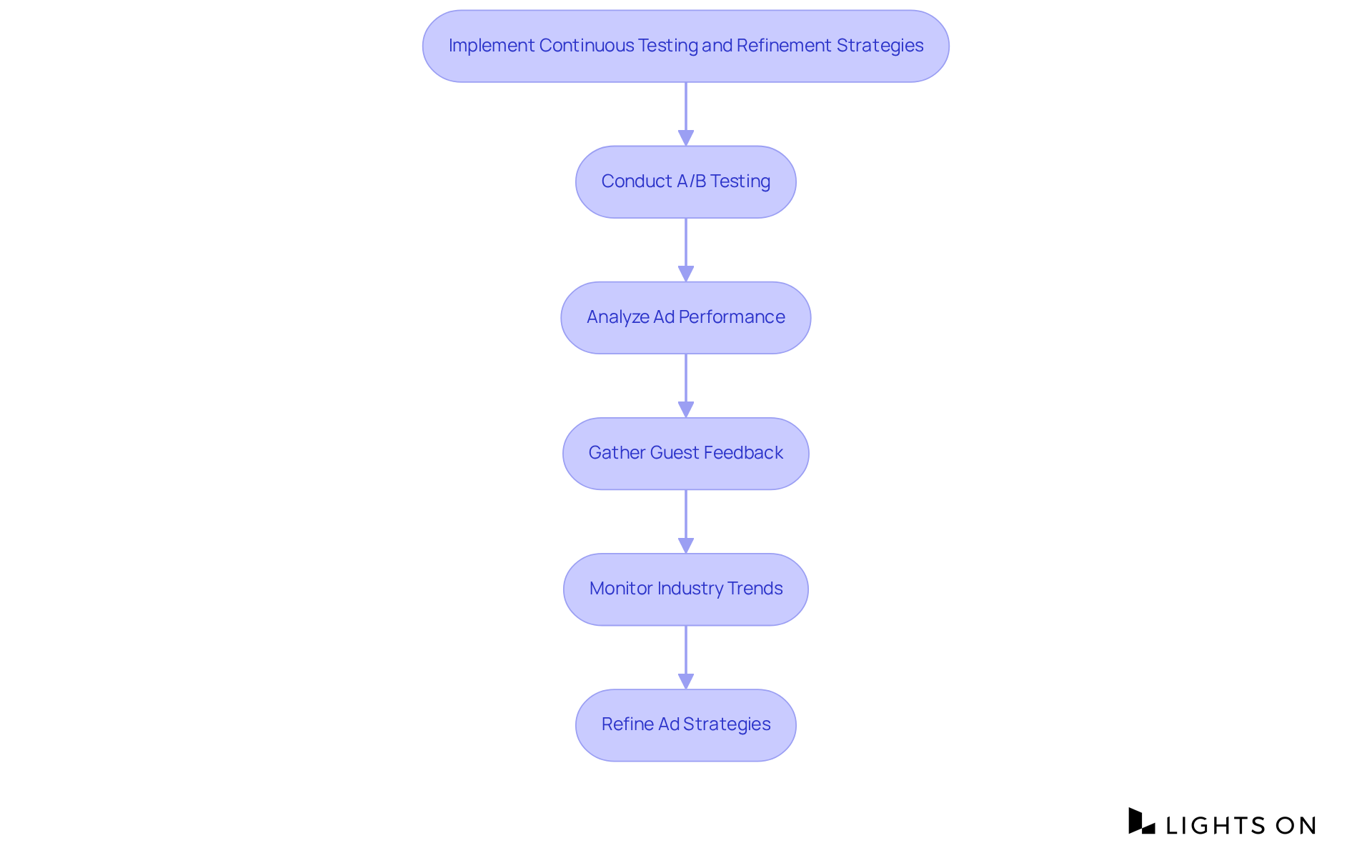The article centers on four pivotal strategies for crafting effective advertisements that drive hotel success. It underscores the necessity of comprehending the target audience, accentuating unique selling points, harnessing data-driven insights, and executing continuous testing and refinement. These strategies are bolstered by evidence and examples, demonstrating how tailored messaging, clear differentiation, and ongoing optimization can significantly elevate engagement and conversion rates. Ultimately, these practices propel bookings and revenue growth for hotels.
Crafting an effective advertisement for a hotel can be the decisive factor between a fully booked property and one that struggles to attract guests. In an increasingly competitive hospitality industry, understanding the nuances of target audiences and leveraging unique selling points is essential for success. However, how can hotels ensure their advertising not only reaches the right people but also resonates with them in a meaningful way? This article delves into four key strategies that can transform hotel ads into powerful tools for engagement and conversion, ultimately driving business growth.
To create an , it is crucial to first . This process entails segmenting potential customers based on :
Employ tools like surveys, online analytics, and social media insights to . For example, if your hotel is located near a popular tourist attraction, you may want to .
Develop detailed and needs of your ideal customers. This strategic approach will guide your messaging and ensure that your resonates with the interests and desires of your audience, ultimately .

Identifying your target audience is merely the starting point; the subsequent critical step involves effectively highlighting your 's . These USPs may include , distinctive experiences, or exclusive offers that set your property apart from competitors. For instance, if your hotel features a rooftop pool with , this attribute should be prominently showcased in your ad for hotel. Utilize striking visuals and persuasive language to communicate the advantages of these offerings.
The impact of on visitor booking choices cannot be overstated. Research indicates that amenities such as luxurious spas, gourmet dining options, and unique recreational activities significantly influence travelers' decisions. In fact, Seafield Hotel achieved a remarkable 69% increase in revenue after reassessing their target audience, underscoring the necessity of aligning offerings with customer expectations. Incorporating testimonials from satisfied visitors further enhances credibility and fosters an emotional connection with potential clients. For example, Markus Schale, General Manager of Hotel Wailea, highlighted how tailored led to exceeding revenue expectations and improved brand visibility.
By clearly articulating what differentiates your hotel and leveraging visitor feedback, you can successfully attract more patrons and increase reservations. Effective marketing campaigns often emphasize exceptional amenities, which are highlighted in an ad for hotel, demonstrating their value and allure. This strategic approach not only enhances your hotel's visibility but also positions it as a preferred choice among discerning travelers. Moreover, regularly revisiting and refining your USPs in response to evolving customer preferences is essential for maintaining relevance in a competitive market. As TravelBoom Hotel Marketing emphasizes, is crucial for driving direct bookings and cultivating lifelong loyalty.

Harnessing is crucial for refining your ad for hotel . Evaluate key performance metrics such as:
to identify areas for improvement. Utilizing tools like Google Analytics and social media analytics can yield into which ad for hotel resonates most with your target audience. For instance, if data reveals that ads promoting family-friendly packages yield higher engagement, reallocating budget towards these campaigns can drive better results.
Furthermore, employing allows you to experiment with various ad formats and messaging, pinpointing the most effective strategies. (ROAS) is equally important for comprehending the financial impact of your promotional efforts. By consistently monitoring and adapting your approach based on these insights, you can significantly enhance the and maximize your return on investment.

To maintain a competitive edge, it is essential to implement in your efforts. This approach involves regularly reviewing the ad for hotel performance and making necessary adjustments. For instance, utilizing allows you to compare different versions of your ad for hotel, such as varying headlines, images, or calls to action. Statistics indicate that an ad for hotel A/B testing can lead to an average conversion uplift of 9.7% for optimized landing pages, showcasing its significant potential impact on hotel bookings.
Analyzing the ad for hotel results enables you to determine which elements drive the best performance. Furthermore, through surveys or online reviews, and monitoring industry trends, is essential for creating a compelling ad for hotel to help you stay ahead of the curve. By and adaptation, you can ensure that your ad for hotel evolves with the market, ultimately leading to sustained success.
As Frank DePino, Principal and Founder of Mediaboom, notes, " can turn curiosity into confirmed bookings when it follows a clear roadmap." This statement underscores the importance of structured testing and refinement in achieving your marketing goals, such as developing a successful ad for hotel promotions.

Identifying the right strategies for effective hotel advertising is vital for achieving success in a competitive market. Understanding your target audience and their unique needs allows hotels to tailor their marketing efforts to resonate more deeply with potential guests. This targeted approach not only enhances engagement but also drives higher conversion rates, ensuring that advertising efforts yield meaningful results.
Key strategies include:
These tactics collectively empower hotels to create compelling advertisements that attract attention and foster emotional connections with potential customers. By focusing on what makes their offerings exceptional and adapting to changing market dynamics, hotels can effectively position themselves as preferred choices for travelers.
Ultimately, the significance of effective hotel advertising cannot be overstated. As the hospitality landscape evolves, embracing innovative marketing strategies and prioritizing guest-centric approaches will be essential for capturing market share and driving direct bookings. It is crucial for hotel operators to remain proactive in their advertising efforts, utilizing insights and feedback to continuously refine their strategies. Taking action now to implement these proven techniques will lead to sustained success and growth in the highly competitive hotel industry.
Why is it important to identify your target audience for advertisements?
Identifying your target audience is crucial because it allows you to create effective advertisements that resonate with the specific interests and needs of potential customers, enhancing engagement and conversion rates.
What demographics should be considered when segmenting potential customers?
Key demographics to consider include age, income, travel preferences, and booking behaviors.
What tools can be used to gather data about your target audience?
Tools such as surveys, online analytics, and social media insights can be used to collect valuable data about your target audience.
How can developing guest personas help in advertising?
Developing detailed guest personas helps encapsulate the characteristics and needs of ideal customers, guiding your messaging and ensuring that your advertisements resonate with your audience.
What is an example of a target audience for a hotel advertisement?
An example of a target audience for a hotel advertisement could be families looking for vacation destinations, especially if the hotel is located near a popular tourist attraction.
Transform your group booking strategies with Lights On and watch your occupancy soar.